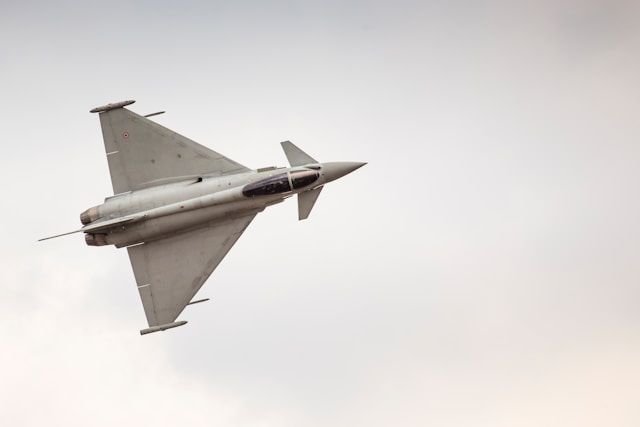India boosts naval power with Rafale Marines; China escalates U.S. Trade war with massive tariff hike
India has greenlit a landmark $7-billion purchase of Rafale Marine fighter jets for its Navy, as China simultaneously intensified its trade war with the United States, raising retaliatory tariffs on American goods to a staggering 84%. The twin developments on Wednesday underline escalating geopolitical manoeuvres across Asia and the Indo-Pacific.
The Cabinet Committee on Security (CCS), chaired by Prime Minister Narendra Modi, gave the final nod to the long-anticipated Rafale Marine deal, which includes 22 single-seater fighters capable of operating from aircraft carriers and four twin-seater trainer variants. While the trainers lack carrier compatibility, they are essential for advanced pilot instruction.
The 26-jet procurement forms part of India’s broader push to modernise its naval aviation wing amid growing Chinese assertiveness in the Indian Ocean region. Official sources said the agreement, which has been negotiated on a Government-to-Government basis with France, is expected to be signed during a forthcoming visit by the French Defence Minister later this month.
The Rafale Marine, manufactured by Dassault Aviation, will serve aboard India’s new aircraft carrier INS Vikrant, offering a significant combat edge in maritime operations. The deal’s approval puts another French defence deal—three additional Scorpene-class submarines—next in line, awaiting CCS clearance.
Embed from Getty ImagesMeanwhile, China has dramatically escalated its economic offensive against the United States, raising retaliatory tariffs on American exports from 34% to an eye-watering 84%. The move follows the Biden administration’s renewed restrictions on Chinese semiconductor and AI-linked companies, as well as a fresh wave of tariffs imposed on strategic Chinese imports.
In a statement issued by China’s Ministry of Commerce, the hike was described as a “necessary and proportional” response to what it called “persistent unilateralism and trade bullying by the United States.”
The announcement immediately rattled global markets, as analysts warned of a potential slide into deeper decoupling between the world’s two largest economies. American agricultural goods, industrial components, and high-end electronics are among the categories hit hardest.
The trade friction comes at a politically sensitive time in both countries. In the United States, President Donald Trump—now in his second term—faces intense scrutiny over his handling of foreign policy, particularly concerning China. In Beijing, President Xi Jinping remains committed to shielding strategic industries while projecting strength on the global stage.
For India, the approval of the Rafale Marine deal signals a continuation of New Delhi’s diversification strategy in defence procurement. It also underscores deepening defence ties with France, a relationship that has matured through submarine co-production, fighter jet sales, and joint naval exercises.
The Indian Navy had long flagged the need for carrier-compatible jets, especially after delays and technical hurdles surrounding the indigenous Twin Engine Deck-Based Fighter (TEDBF) programme. The arrival of Rafale Marines is expected to significantly improve INS Vikrant’s operational readiness.
While Delhi eyes the Indo-Pacific, Beijing sharpens its economic weapons against Washington. The timing of the two developments may be coincidental, but both highlight the strategic recalibrations underway across Asia’s power corridors.
As the dust settles, India will prepare to welcome French defence officials to seal one of its most significant military deals in recent years. Simultaneously, Washington and Beijing edge closer to a full-blown trade war redux, sending shockwaves through global supply chains.
